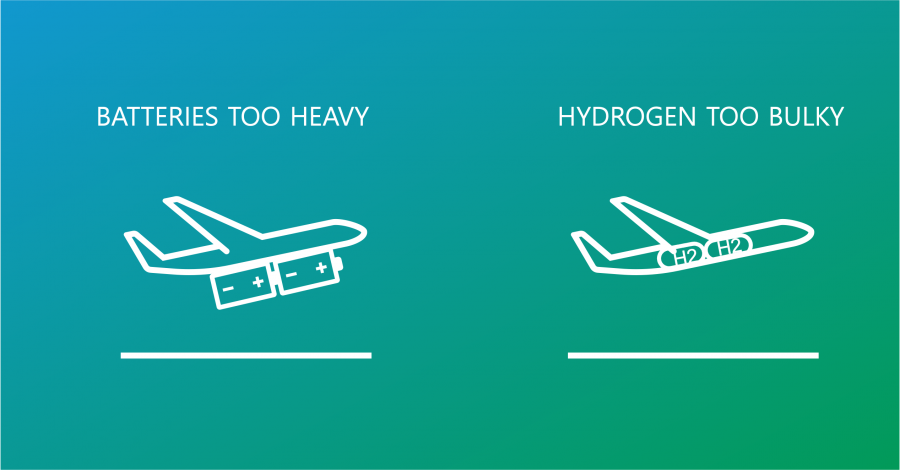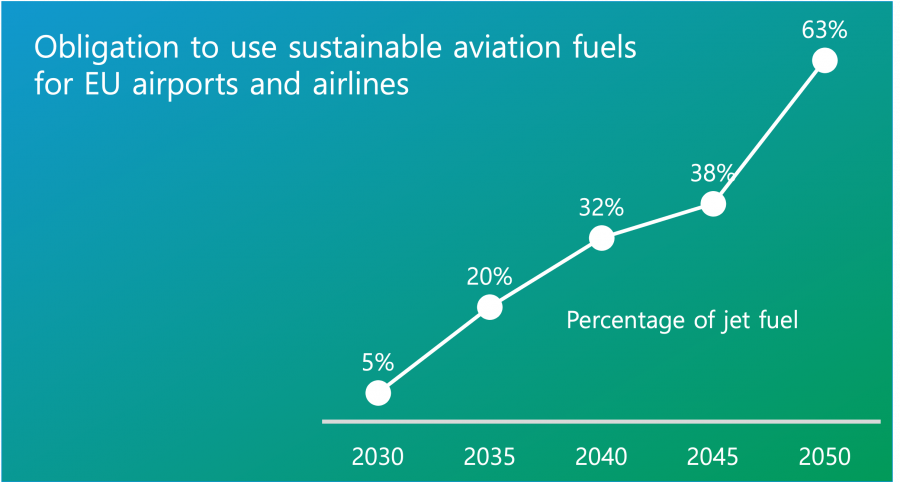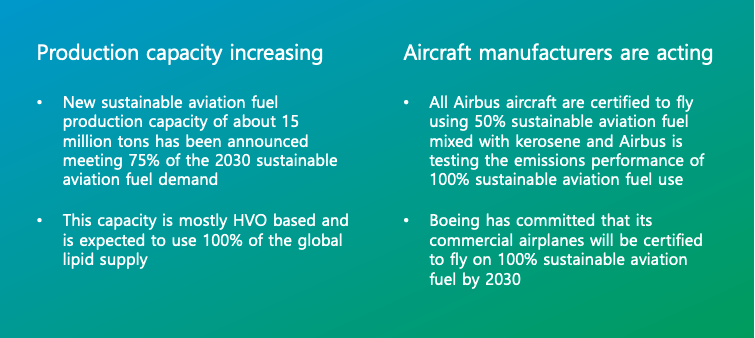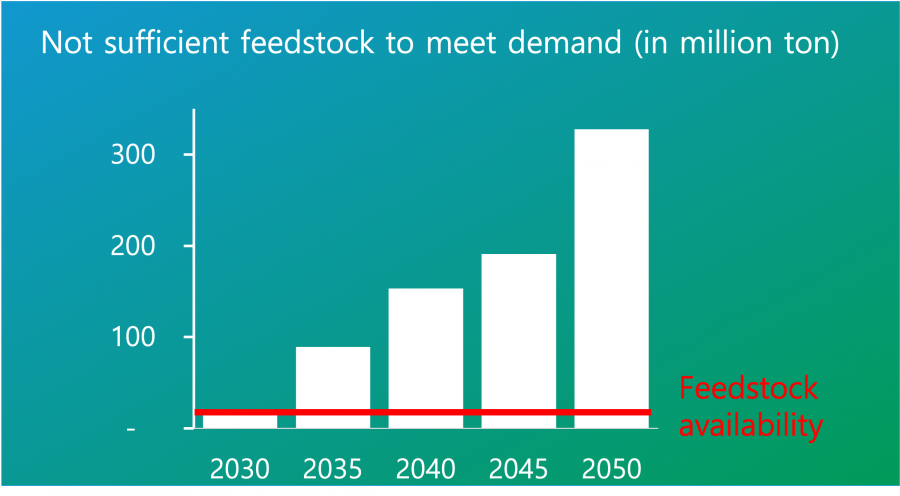No alternative for liquid fuels
- Batteries or hydrogen are not the solutions to decarbonize the airline sector
- The weight and size of the required energy to fly are too large
- Significant investment in infrastructure and engines needed

Ramping sustainable aviation fuel demand
Europe (and many other parts of the world including the US) are regulating the increasing use of sustainable aviation fuels

The aviation sector is choosing HVO as the solution
- The most economical to produce sustainable aviation fuels is by processing lipids (such as Used Cooking Oil - UCO) to sustainable aviation fuels– so-called HVO or HEFA technology
- Sustainable aviation fuels can be safely blended with traditional jet fuel because the chemical characteristics of the two are very similar
- No new supply chains or engines are needed savings significant infrastructure and technology investments

Feedstocks are the bottleneck
Owing to the limited availability of feedstock, the market value of global feedstock shortage is estimated to be almost $135 billion in 2030 $500 billion in 2050



